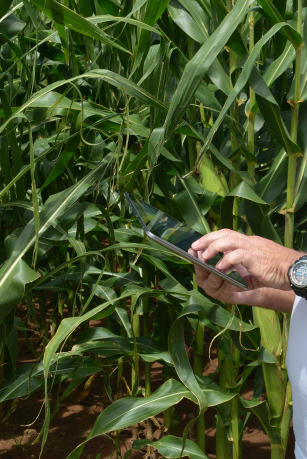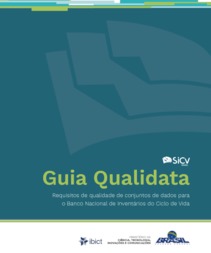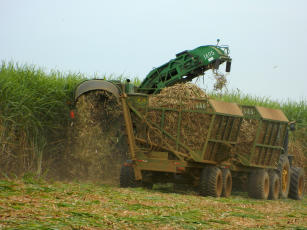Structuring the Life Cycle Assessment (LCA) Network at Embrapa - Stage I
Structuring the Life Cycle Assessment (LCA) Network at Embrapa - Stage I

Photo: ALVES, Lilian
In the national agricultural sector, LCA can contribute to promoting a cleaner agriculture and to defend Brazilian agricultural products in the international market. This technique can also be used in the context of Ecodesign, as it applies to the assessment of the impacts of new technologies.
In order to have Embrapa meet the demand for LCA studies of agricultural products, and also adopt the methodology to assess the impacts of their technologies, structuring is required. This project aims to structure the Embrapa LCA Network. For that purpose, it will require actions to organize the knowledge previously generated by the corporation on the topic and similar subjects.
A systematic study of Embrapa's project portfolio will indicate the current levels and the new demands for LCA research. In addition, opportunities for interaction between projects could be identified. Embrapa's critical mass in LCA is limited. There are very few researchers specifically dedicated to the subject. On the other hand, integrating such experts with the ones who specialize in important correlated topics is of utmost importance. The skills mapping and capacity-building activities proposed in this project will promote the increment of such critical mass and the gathering of several specialists.
The complexity of LCA studies impels them to be conducted by multidisciplinary teams. In order to have them work in integration, methodological and tool standards are going to be proposed. This project will offer an Information Technology strategy for the Embrapa LCA Network.
In order to generate Life Cycle Inventories (LCIs) with methodological coherence that can be shared through the Network, the standardization of LCA support tools is indispensable. For that purpose, the project will establish criteria and evaluate the main softwares and databases currently available in the market. With regard to methodological standards, it will elaborate guides for the elaboration of LCIs and for Life Cycle Impact Assessments (LCIAs).
Building an LCI entails computing the material and energy involved in a production process. To estimate the consumption of natural resources and the output of substances into the environmental components, predictive factors or models are generally used. Such factors and models are generated for specific geographic conditions, and most of them are adequate for temperate countries. This project will proceed to an extensive literature review, aimed at identifying, describing and recommending factors and models that are more appropriate for the elaboration of agricultural product LCIs in Brazilian conditions.
At the LCIA stage, a product's LCI data are converted into environmental impact values for different impact categories. There are countless methods are available in the literature for such process. The impact categories that have a regional nature are assessed by characterization factors obtained by considering regional environmental aspects, such as climate, soil, relief and vegetation. In this project, LCIA methods will be systematically evaluated with the aim of singling out the most qualified ones to assess products and processes in the different Brazilian regions. Thus, this project intends to provide the necessary conceptual and methodological foundations and to recommend the tools required to structure Embrapa's LCA Research Network.
Status: Completed Start date: Sat Mar 01 00:00:00 GMT-03:00 2014 Conclusion date: Tue Feb 28 00:00:00 GMT-03:00 2017
Head Unit: Embrapa Environment
Project leader: Marilia Ieda da Silveira Folegatti Matsuura
Contact: marilia.folegatti@embrapa.br
Keywords: Impactos Ambientais, Desempenho Ambiental, Sustentabilidade


